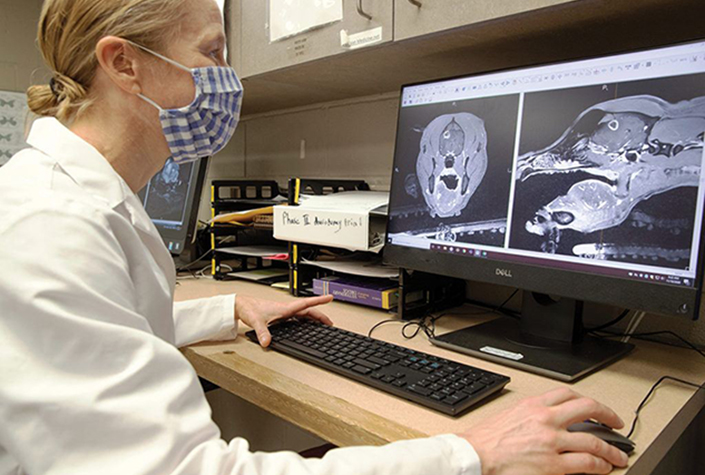Brain cancer: Immunotherapy drug can reduce size of tumors, study says

A team of researchers at Texas A&M University, Northwestern University, and ImmunoGenesis has discovered a treatment for glioblastoma that has promising implications for the human version of the aggressive cancer form that grows in the brain.
Published in Clinical Cancer Research, a journal of the American Association for Cancer Research, the study, “Intratumoral Delivery of STING Agonist Results in Clinical Responses in Canine Glioblastoma,” describes the results of a Phase I clinical trial conducted at the Texas A&M College of Veterinary Medicine & Biomedical Sciences’ (CVMBS) Veterinary Medical Teaching Hospital (VMTH) by Beth Boudreau, an assistant professor of neurology.
As part of the trial, Boudreau administered an immunotherapy drug developed by Michael A. Curran, an immunologist and founder of ImmunoGenesis, based on ongoing research that also included Amy B. Heimberger, scientific director of the Malnati Brain Institute at Northwestern University.
The investigators tested a STING (STimulator of INterferon Genes) agonist injected directly into the glioblastoma of five dogs that had previously been diagnosed with the cancer, which is the second-most common type of brain cancer in dogs. STING agonists can induce immunological responses that allow the immune system to fight otherwise immunologically resistant cancer cells.
MRI scans taken of the patients over the course of the 10-month trial revealed that some of the dogs, even with single dose, responded to the treatment with apparent reductions in their tumor volume, including one complete response in which the tumor appeared to completely disappear, leading the team to conclude that this therapy can trigger a robust, innate anti-tumor immune response and may be highly effective on recalcitrant tumors such as glioblastoma.
“With this therapy, we were trying to take tumors that do not, on their own, generate a lot of immune response and turn them into tumors that do by injecting them with this immunotherapy agent,” Boudreau said.

